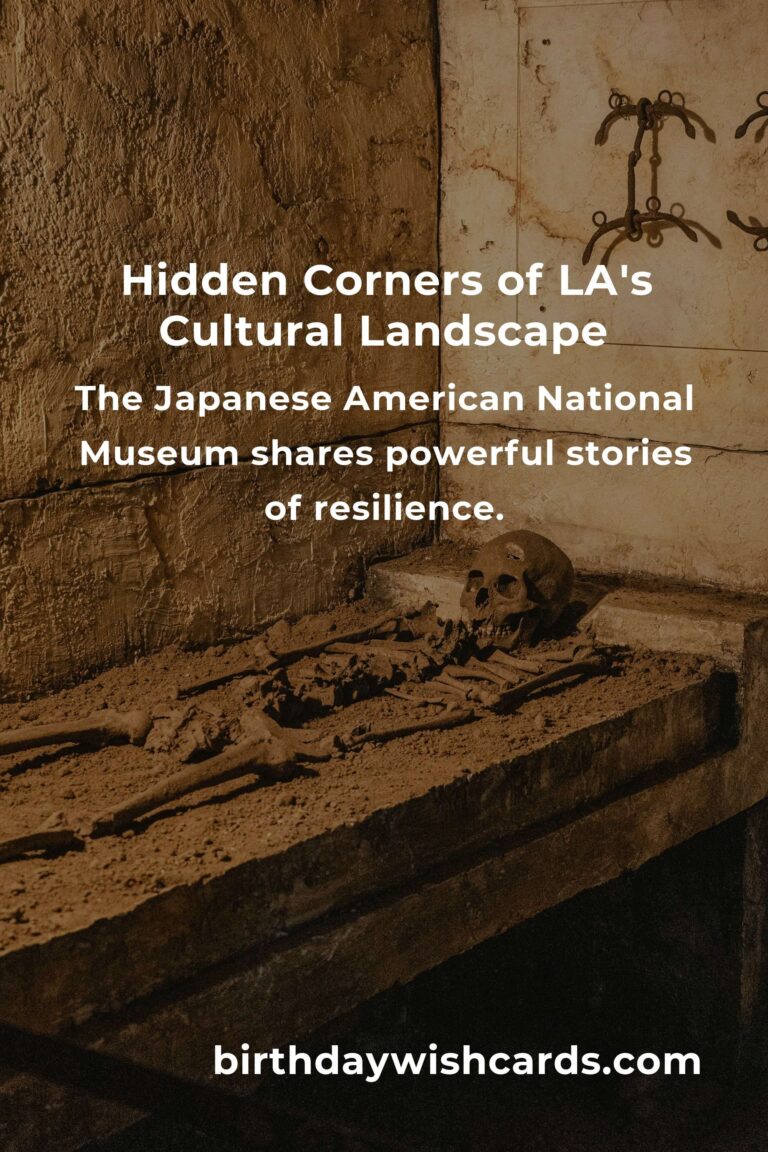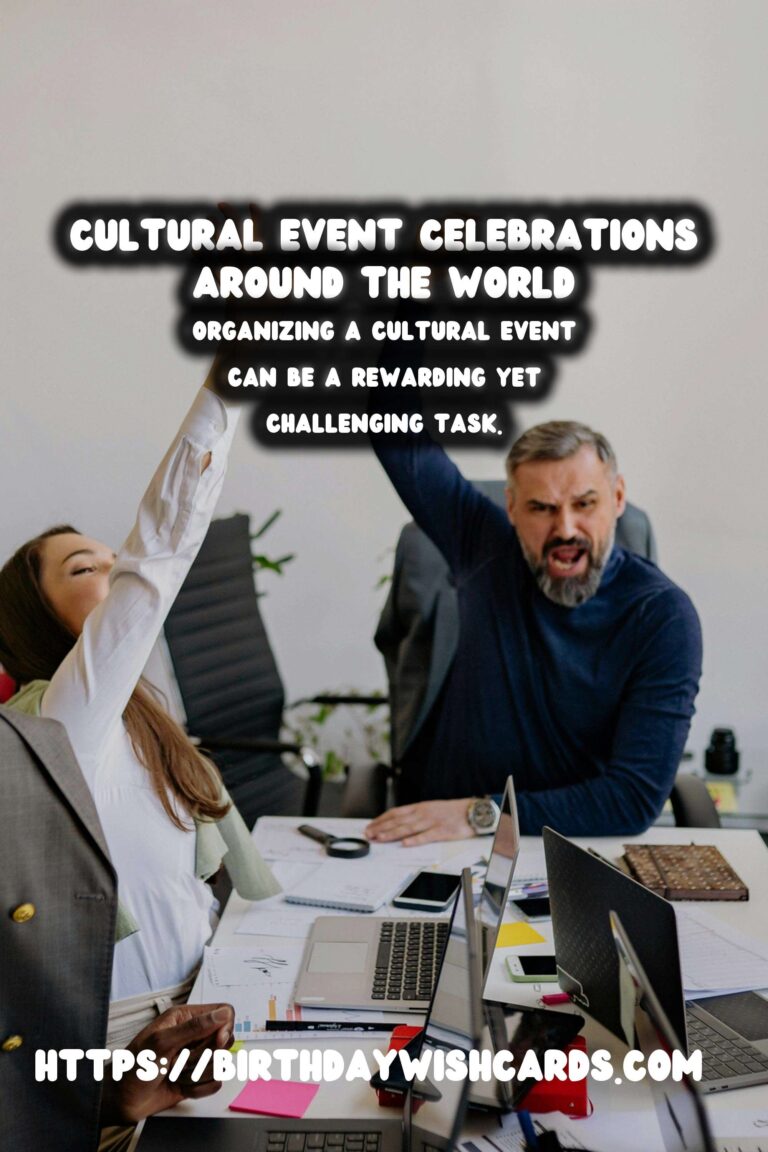
Organizing a cultural event can be a rewarding yet challenging task. It requires careful planning, creativity, and a deep understanding of your audience. In this guide, we will explore the key steps to ensuring your cultural event is not only successful but also memorable for attendees. From concept development to execution, this guide will provide valuable insights that will help you create an unforgettable experience.
1. Define Your Objectives
Understanding the purpose of your cultural event is the first step in organizing it. Are you aiming to promote a specific culture, raise funds for a cause, or simply entertain? Clear objectives will guide your decisions throughout the planning process. Consider conducting surveys or focus groups to gather insights on what your target audience finds appealing.
2. Choose the Right Venue
The venue plays a vital role in creating an atmosphere that resonates with your theme. Select a location that aligns with the cultural elements you wish to showcase. For instance, hosting a traditional music festival at a local amphitheater can enhance the experience for attendees. Ensure the venue can accommodate your expected number of guests and has the necessary facilities.
3. Budget Planning
Creating a budget is essential for any event. List all potential expenses, including venue rental, marketing, talent fees, and equipment rentals. Then, identify possible revenue sources such as ticket sales, sponsorships, and merchandise. Staying within budget will keep your event financially viable while still offering a rich experience.
4. Assemble Your Team
Having a dedicated team can streamline the organization process. Designate roles such as event coordinator, marketing lead, and logistics manager. Ensure that everyone understands their responsibilities and maintains clear communication throughout the planning phase. Regular meetings can help keep the team aligned and proactive.
5. Curate Engaging Content
The content of your cultural event is what will keep your audience engaged. Consider including workshops, live performances, and interactive exhibits. Collaborate with local artists and cultural groups to enrich the program. Ensure that each activity reflects the culture you are celebrating and adds value to the experience.
6. Marketing and Promotion
Successful promotion is critical for the visibility of your event. Utilize social media platforms, local media outlets, and community boards to spread the word. Create engaging content that highlights the unique aspects of your cultural event. Don’t forget to leverage SEO-optimized keywords in your promotional materials to enhance online visibility.
7. Engage with the Community
Building relationships with the local community can enhance your event’s impact. Reach out to cultural groups, schools, and local businesses for partnerships and collaboration. Their insights and support can improve your event’s relevance and amplify outreach efforts.
8. Logistics and On-the-Day Management
Once everything is in place, turn your focus to logistics. Create a detailed schedule that includes setup, event timings, and breakdown procedures. Ensure that all team members are aware of the timeline and their tasks. Being well-prepared will help in dealing with any unforeseen issues on the event day.
9. Post-Event Evaluation
After the event concludes, take time to evaluate its success. Gather feedback from attendees and team members to learn what worked well and what could be improved. Analyzing this data will provide valuable insights for future events.
10. Cultivating Long-Term Relationships
Maintain connections with attendees, artists, and partners post-event. Utilize social media and email newsletters to keep them updated on future events and initiatives. Cultivating these relationships can create a loyal audience base for upcoming cultural events.
Conclusion
Organizing a cultural event is more than just planning; it’s about creating shared experiences and fostering community. By following these steps, you can ensure that your cultural event leaves a lasting impression on all who attend. Remember that flexibility and adaptability are crucial, as challenges may arise. Embrace the journey of bringing culture to life, and your efforts will undoubtedly lead to an unforgettable experience!
Organizing a cultural event can be a rewarding yet challenging task. Understanding the purpose of your cultural event is the first step in organizing it. 
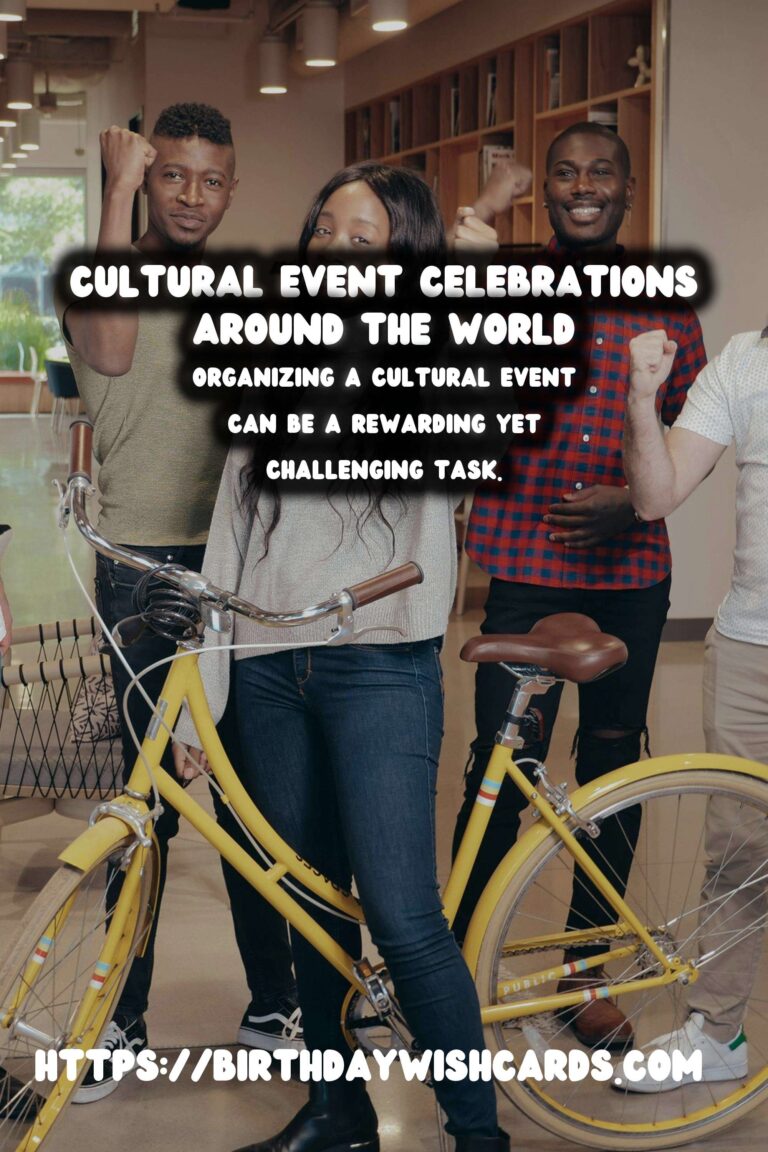
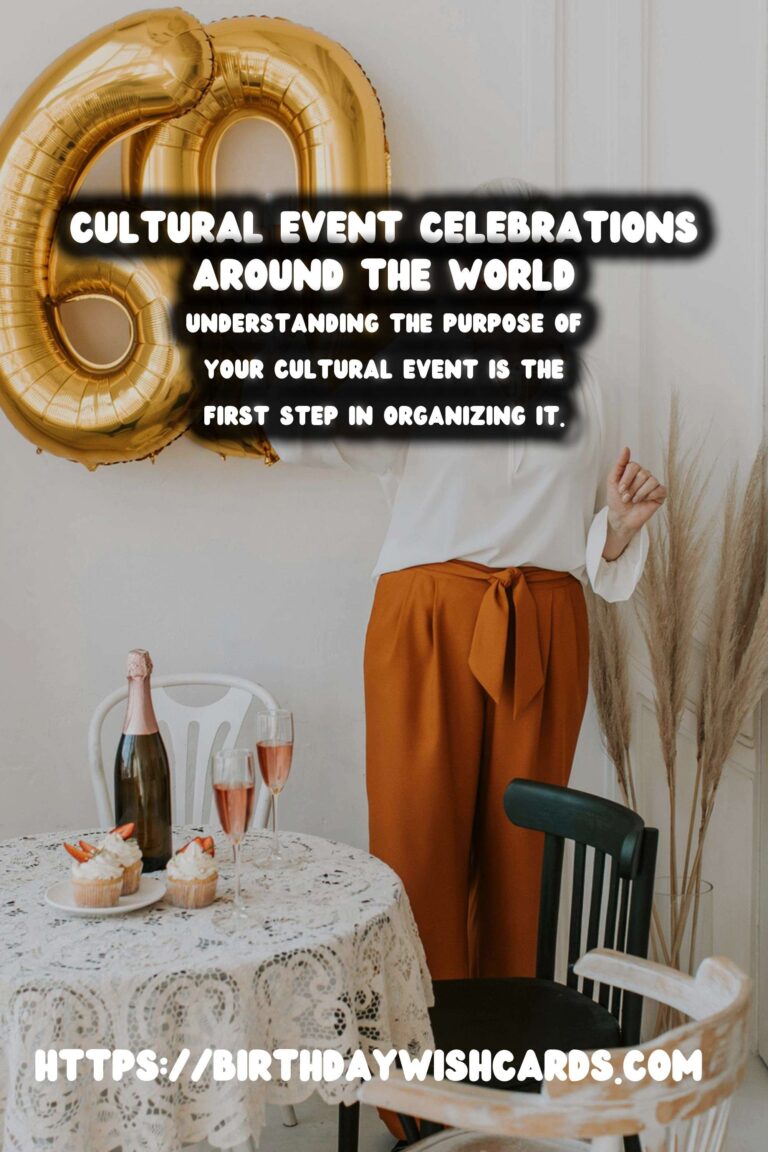
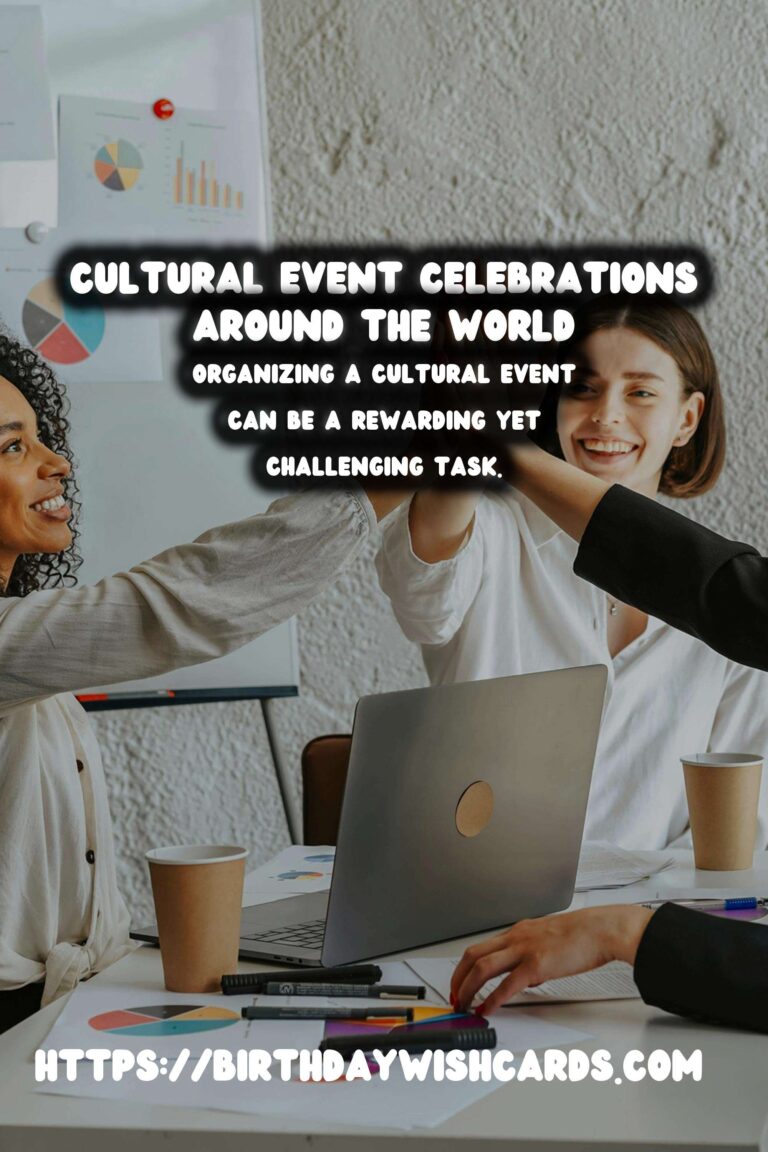
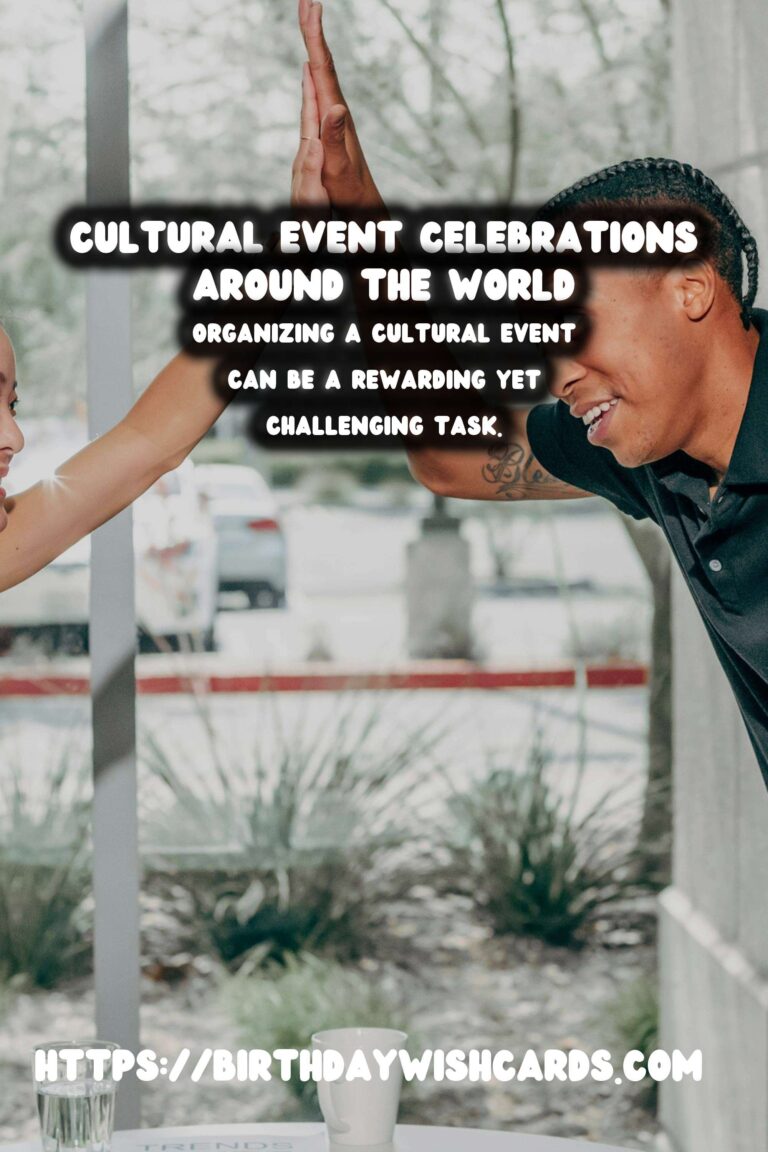
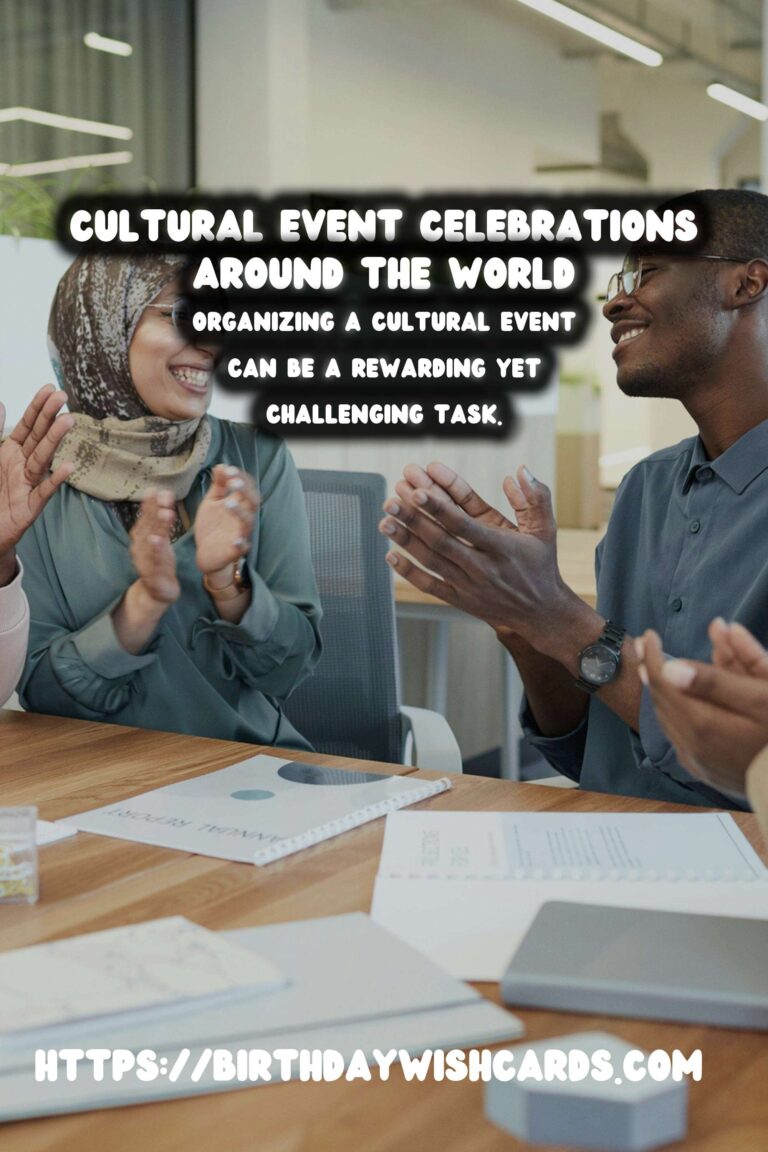
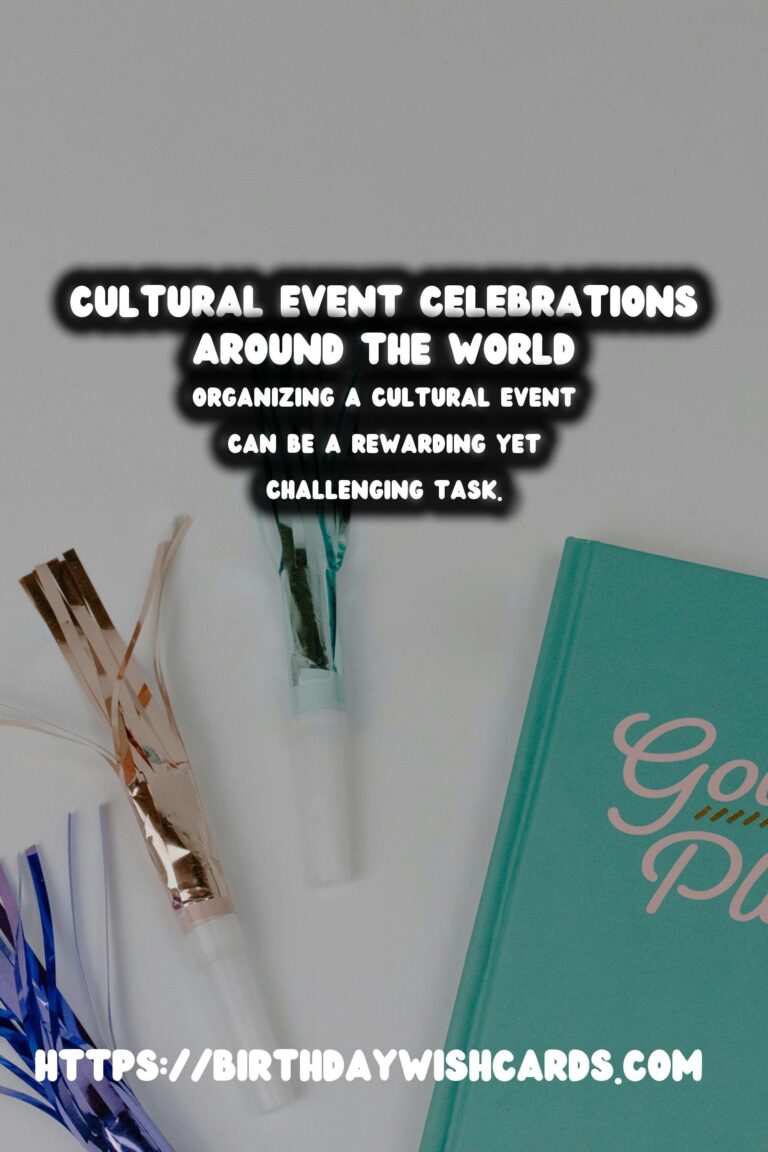
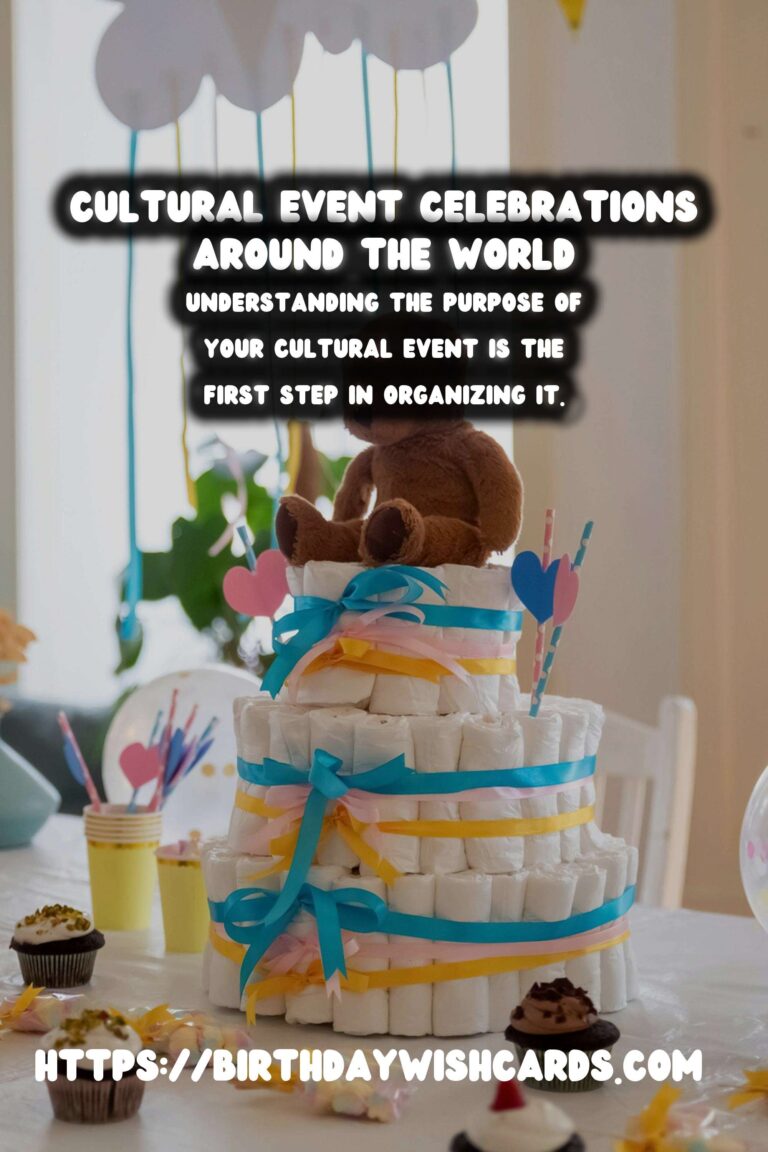

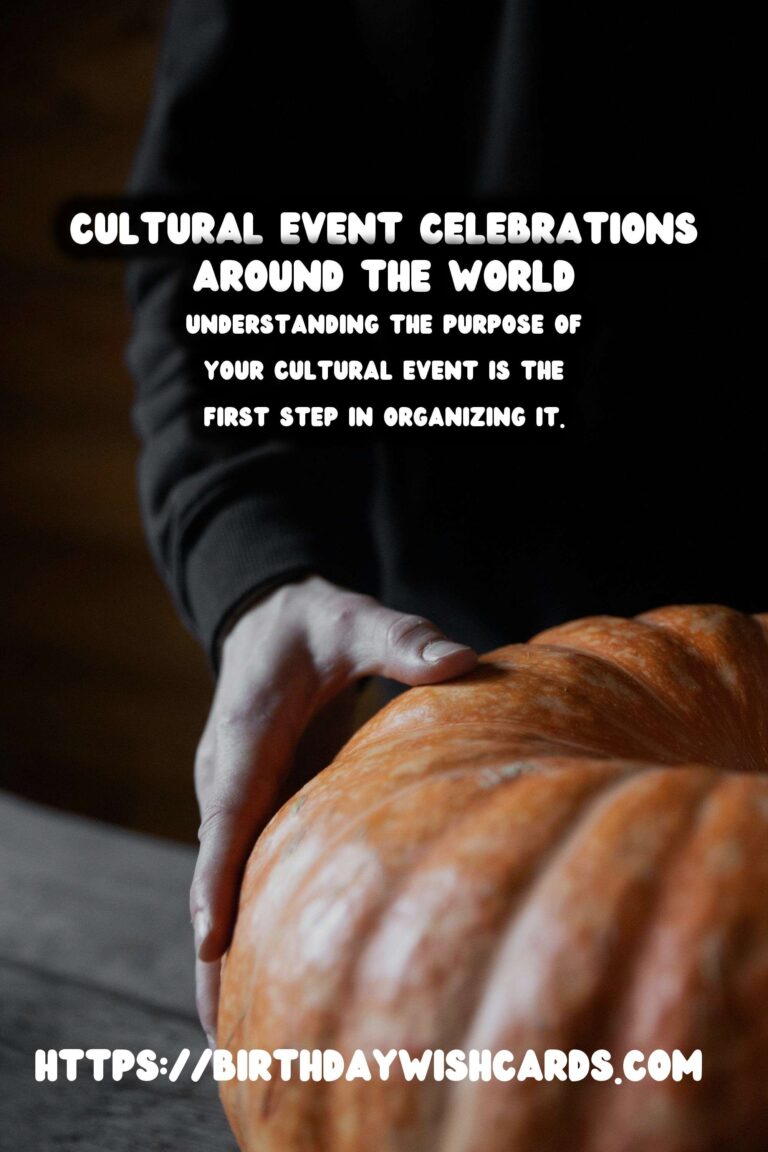
#CulturalEvent #EventPlanning


